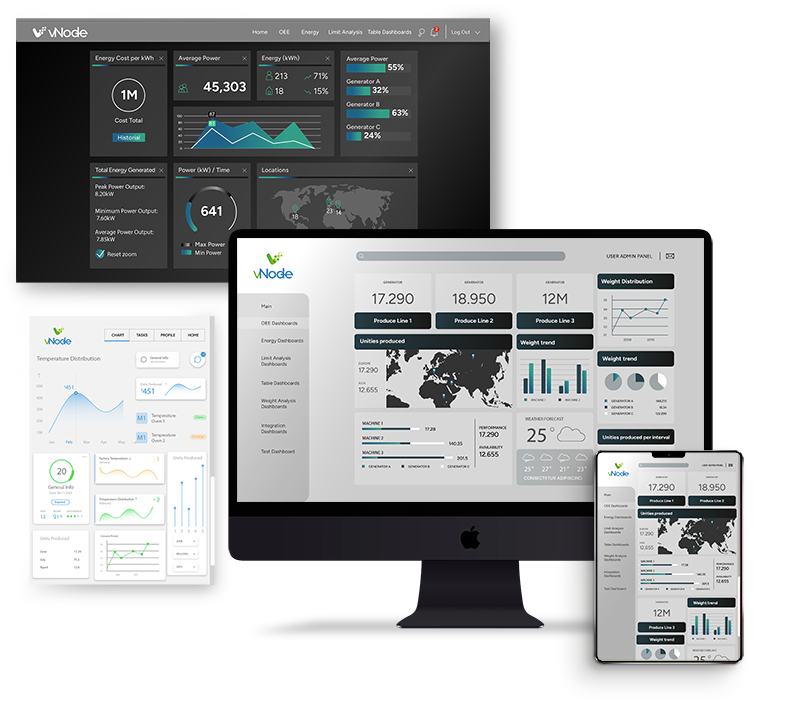vNode Modbus Client Module
Modbus Client Module
Modbus is a protocol created since the 80’s by Modicon, its acceptance in the market is due to its easy implementation and structure which has allowed many manufacturers of control equipment to include it as one of the base languages for communication with their equipment.
Modbus has different variants that have allowed it to be integrated into multiple areas of industry, all under the master-slave architecture.
The most common Modbus types are:
Modbus RTU: was one of the first specifications to emerge and emphasizes serial communications based on RS232 – RS485 ports.
Modbus TCP: encompasses the RTU frames and adds TCP headers, providing IP addressing and communication port.
Modbus ASCII: each data byte is split into the two bytes representing the two ASCII characters in the Hexadecimal value.
Modbus Client Module Features
Modbus is a standard protocol that is applied in many industries, thanks to its easy implementation and integration for manufacturing, energy and building automation. The vNode Automation Modbus client module allows communication with multiple plant floor devices via Modbus TCP/IP and RTU.
- Supports Modbus RTU and TCP
- Supports function 6 for writing a single register
- Unlimited slave connections
- Device-level redundancy can be managed over TCP.
Download vNode and start processing and integrating data from your automation systems in just a few minutes.
Security And Communication: Modbus Client Module
Modbus Client Module allows that only the masters can initiate the communication and therefore the slaves can only respond to these requests.
There are necessary elements to establish a Modbus communication, and that will depend on its transmission medium, either serial (RTU) or TCP, however, they are very simple to obtain parameters that come directly from the slave, such as:
- Serial port speed (RTU)
- Stop bits (RTU)
- Parity (RTU)
- Slave number (RTU and TCP) supports up to 247 slaves on a single link.
- IP address (TCP)
- Default TCP port (TCP) 502
The registers are tied to function codes, which allow to indicate by means of the command what type of action is required to be performed from the Master to the Slave, whether it is read, write or other type of commands.
The access to the information or data in Modbus is established by types of registers, each one of them corresponds to a data type:
- Type 0 – Coils – Write Binaries
- Type 1 – Coils – Read binaries
- Type 3 – Analog Inputs – Read Analog
- Type 4 – Holding Registers – Read and Write Analog
